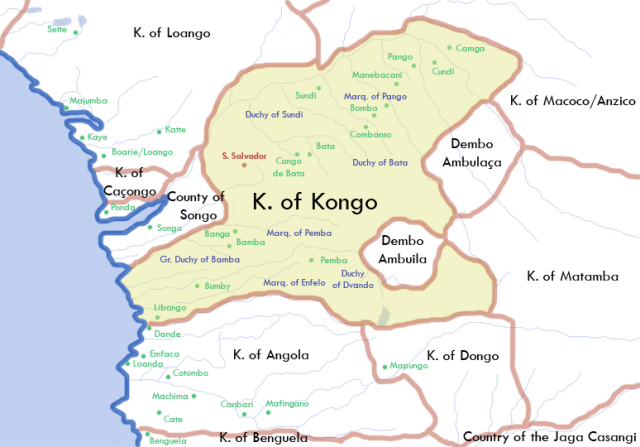Kongo
Kongo was the name of a west-central African kingdom that emerged in the late 1400s and eventually became part of the Portuguese colony of ANGOLA. Kongo was initially a federation of several small states, whose people elected its king. Over time the kings concentrated power and resources in the capital at Mbanza Kongo and established a more centralized government. They appointed leaders to govern the provinces and used a large army based in the capital to maintain order.
The Portuguese arrived in the area in the 1480s. By the mid-1500s Kongo's rulers had adopted Christianity and many European customs. The capital, rebuilt in stone in 1596, became the seat of power for a Catholic bishop.

After the death of King Antonio I in 1665, civil war erupted in Kongo. The royal family split into three groups, with each of the three establishing a base in a different part of the country. The civil war was a fierce one that wiped out many of the people who lived in Kongo, as some were killed and many were captured and exported as slaves. King Pedro IV reunited Kongo in the early 1700s, but the kingdom was much weaker than it had been before the war. It no longer exists. (See also Colonialism in Africa.)